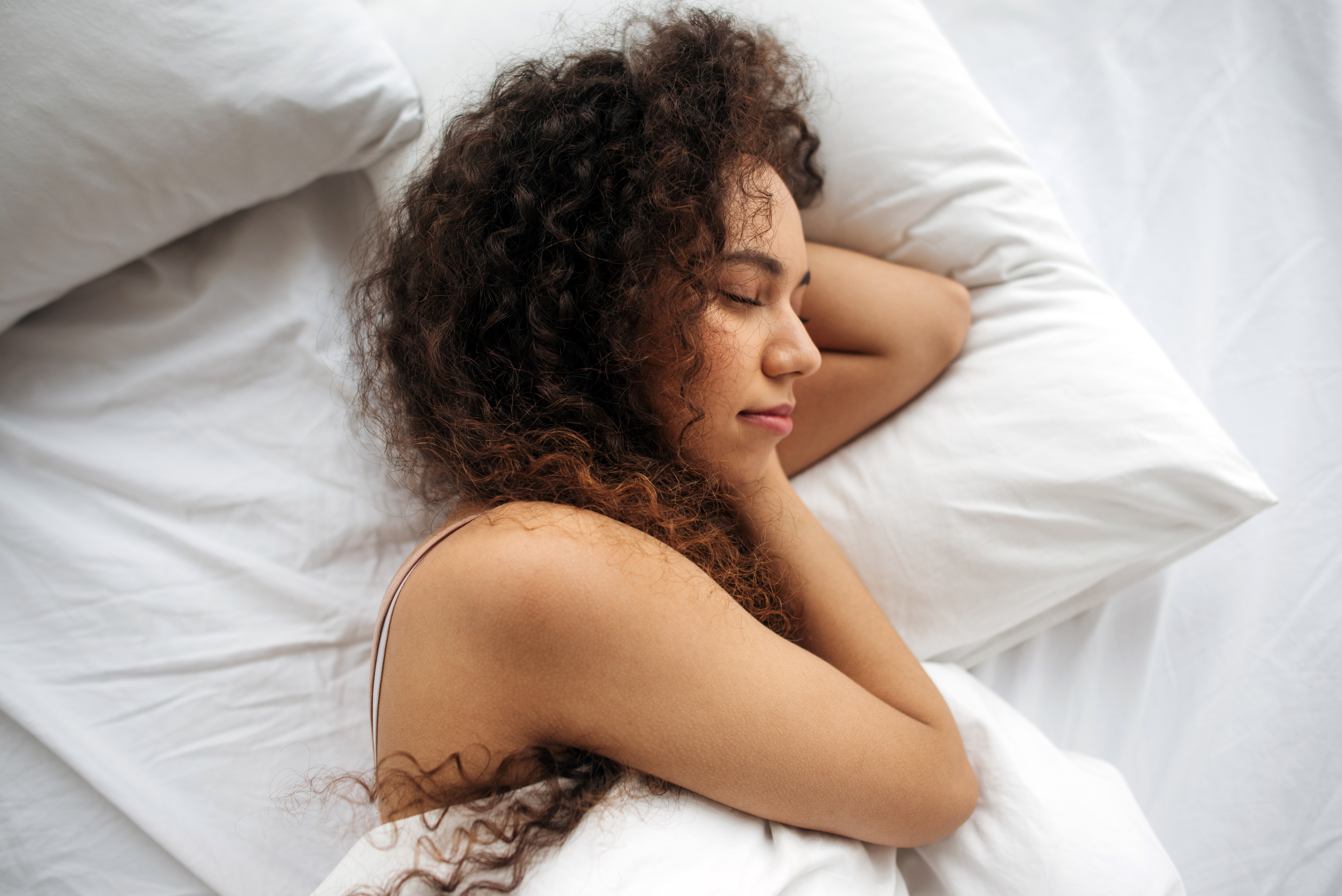Are Sleep Supplements the Answer to More Beauty Sleep?

Everyone is after a good night's sleep. We spend countless hours crafting the perfect bedtime routine, investing our dollars in dim lighting, sound machines, meditations and sleep masks. Influencers on TikTok and Instagram encourage us to drink brightly colored drinks they label as ‘the sleep girl mocktail’ that’s packed with cherry juice and magnesium powder — destined to provide a great night of sleep. And because 19% of adults in the United States don’t get enough sleep, it’s no wonder that the ‘sleep economy’ — that includes everything from bedding and pillows to supplements and gummies — is forecasted at $585 billion globally in 2024. But how much of these investments actually benefit your shuteye? More specifically, can sleeping pills and gummies improve your beauty sleep?
To find out, we spoke to Dr. Bayo Curry-Winchell, Dr. BCW for short, a physician, health equity advocate, medical director and founder of Beyond Clinical Walls, to gather insights on what beauty sleep even is, how to better our sleep routines, and more.
Do You Actually Need Your Beauty Sleep?
According to the Sleep Foundation, the one-stop shop for medical-backed sleep information, adequate sleep helps maintain and repair the entire body, from the brain to the immune system. In addition, it can help with the growth hormones that build muscle and rebuild cells, prevent sickness and fight infection, as well as maintaining memory and learning. But can it actually impact physical beauty?
After a poor night of sleep do you wake up to puffy eyes, lackluster skin or overall stress on your face? According to the National Center for Biotechnology Information, an organization dedicated to advancing science and health, a poor night of sleep can leave unwanted effects on the skin: paler skin, wrinkles and fine lines around the mouth, drooping eyelids, red or swollen eyes and dark circles below the eyes. If you consistently don’t get a good night of sleep, you might be noticing more than one of these side effects more often than not.
Because as it turns out, regular quality sleep can play a role in maintaining clear skin. Overnight, skin is at its highest levels of blood flow that results in increasing body temperature and helping to repair badly damaged skin. Nighttime is also peak time for repairing skin cells damaged by exposure of UV sunlight throughout the day. Therefore, late bedtimes and sleep deprivation are directly linked to changes in the skin complexion — dry skin, peeling, oil secretion and water loss in the skin.
In general, poor sleeping habits can place high levels of stress on the body — impacting your nails and hair as well. When stress hormones continue to rise, it can lead to an increased amount of oil production, which can result in greasy hair or hair loss.
If your schedule does not allow for the recommended seven to nine hours of sleep a night — be it you are a new mom, mother-to-be, professional with a lot of work travel, trained athlete or the like — and you still want to somehow maintain all the good skin health benefits that come with sleeping well, you might be considering a sleeping aid.
Are Sleeping Pills and Gummies Safe to Use?
“A sleep supplement or gummy refers to any ingestible containing substances like medication, vitamins, or hormones, such as melatonin, aimed at aiding sleep,” Dr. BCW shares. However, because these vitamins and supplements are not regulated by the Food and Drug Administration, Dr. BCW recommends informing your health care provider when considering sleep supplements and gummies and to research studies and reviews beyond what the manufacturer provides. Having all the facts is your best first step in the process.
Do Sleeping Aids Have Any Side Effects?
In general, common side effects can include dizziness, headaches, allergic reactions, memory problems and gastrointestinal issues. In a more serious vein, research over the last five years has shown some sleeping aids do not disclose the dangerous amounts of hormones that can regulate sleep. Since sleeping aids are not regulated, Dr. BCW says it’s hard to know what is actually in many supplements, and the concentration of ingredients can vary from bottle to bottle, gummy to gummy or pill to pill. In a study conducted by Cambridge Health Alliance in Somerville Massachusetts, Dr. Pieter Cohen found that one product contained 347 percent more melatonin that was listed on the label of gummies. So it is wise to take caution and do proper research before consuming.
What Are Some Alternatives to Sleeping Pills and Gummies?
If you do struggle to fall asleep at night and are interested in a natural, non-manipulated result to better sleep, you can try a plethora of alternatives: limit screen time before bed, exercise regularly, meditate, stick to a consistent sleep schedule and create a comfortable sleeping environment. In terms of beauty sleep, these natural tricks should positively impact your sleep and a good skincare routine will further help repair the skin.
Stay tuned for our skincare layering lesson to better skin.
